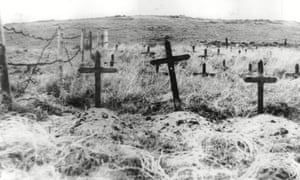For decades, Alderney in the Channel Islands has been trying to find a way to deal with what happened during one of the darkest chapters in its history: its occupation by the Nazis during the second world war.
It is an episode the British government has tried hard to forget. That is until last month, when it was announced that – for the first time – there would be an official inquiry into what happened on Alderney and specifically how many people died.
After the invasion, the Nazis built slave labour camps where they worked hundreds, possibly thousands, of people to their deaths.
Nosheen Iqbal hears from Madeleine Bunting, the author of Model Occupation: the Channel Islands Under German Rule, 1940-1945; and from Martin Bright, a journalist with Index on Censorship. He argues that the government has long known a lot more about the events on Alderney than it has admitted – and that it let prominent war criminals fall through its hands.
Last month Eric Pickles announced a government review of the evidence into the number of prisoners who died on Alderney during the occupation. He tells Nosheen that he will follow that evidence wherever it leads.

Photograph: Northcliffe Collection/ANL/Shutterstock
Support The Guardian
The Guardian is editorially independent.
And we want to keep our journalism open and accessible to all.
But we increasingly need our readers to fund our work.
Join the exciting world of cryptocurrency trading with ByBit! As a new trader, you can benefit from a $10 bonus and up to $1,000 in rewards when you register using our referral link. With ByBit’s user-friendly platform and advanced trading tools, you can take advantage of cryptocurrency volatility and potentially make significant profits. Don’t miss this opportunity – sign up now and start trading!






Recent Comments